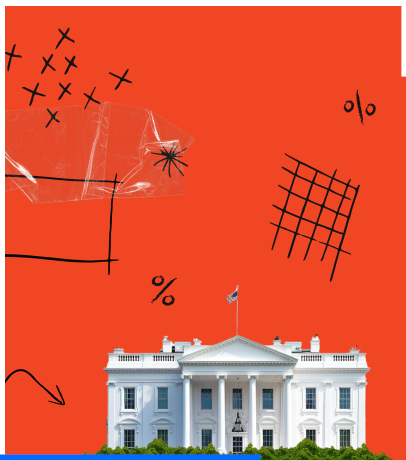
On Thursday, the White House posted on X an AI-generated image of a law enforcement officer arresting a crying woman, apparently to boast about its crackdown on immigration.
The incident underscored the Trump administration’s open contempt for immigrants, particularly those it claims enter the country illegally, while also highlighting its stated goal of ensuring U.S. dominance in AI—an industry led by immigrants.
In 2023, immigrants founded or co-founded 65 percent of the top AI companies in the U.S., a study from the National Foundation for American Policy found. In addition, 70 percent of full-time graduate students in fields related to AI were immigrants.
The post on X, as well as most of the White House’s furor, is focused mostly on asylum-seekers and unauthorized immigrants, who probably are not starting major AI companies. But Trump’s immigration policies have also begun targeting grad students and researchers who have criticized the administration or merely supported causes it opposes.
In March, the French government claimed that a French space scientist was turned away at the border while traveling to a conference in Houston because of messages on his phone that were critical of Trump.
“Freedom of opinion, free research, and academic freedom are values that we will continue to proudly uphold,” said Philippe Baptiste, France’s minister of higher education who publicized the expulsion. “I will defend the right of all French researchers to be faithful to them, while respecting the law.”
In response, Silicon Valley AI companies have started warning their employees not to leave the U.S. out of fear they won’t be allowed to return, the Washington Post reported.
For those already in the U.S., the State Department has used AI with the help of private groups to revoke visas from at least 300 students for alleged participation in campus protests against Israel.
For Tufts graduate student Rumeysa Ozturk, a Turkish national, her student visa revocation was quickly followed by masked ICE agents abducting her in the streets and throwing her in the back of an unmarked SUV.
The administration also revoked the green card of Mahmoud Khalil, one of the student leaders of Columbia’s pro-Palestinian protests last year.
The administration’s crackdown forces the immigrants vital to the American AI industry to make a difficult choice. They can keep a low profile, refrain from exercising their First Amendment rights to avoid the Trump administration’s ire, and hope an “administrative error” doesn’t land them in an El Salvadorian prison with no chance of return. Or they can uproot the lives they have built in America, hoping to boost another nation’s AI industry instead.
Either way, America’s burgeoning AI industry will suffer.
—Philip Athey

Generated Outage
Top Generative AI Takeaways
Top generative AI takeaways:
- A judge has allowed Anthropic to continue training its AI program on copyrighted material. Many artists and news organizations around the globe have launched lawsuits against AI companies, hoping to protect their intellectual property.
- This ruling is a sign that AI companies may be protected, at least in the U.S.
- While IP infringement has been a major concern, a hack at a South Korean-based AI company shows that while some people use generative AI to mimic copyright protected works, the vast majority seem to use it to make non-consensual sexual deepfakes, a move the U.S. is currently working to make illegal with the TAKE IT DOWN Act.
AI-generated Ghibli images go viral as OpenAI loosens its rules: The decision to relax restrictions on mimicking artistic styles sparked a viral wave of Studio Ghibli-inspired creations, reigniting controversy over AI’s use of copyrighted material and artist compensation. (Washington Post)

